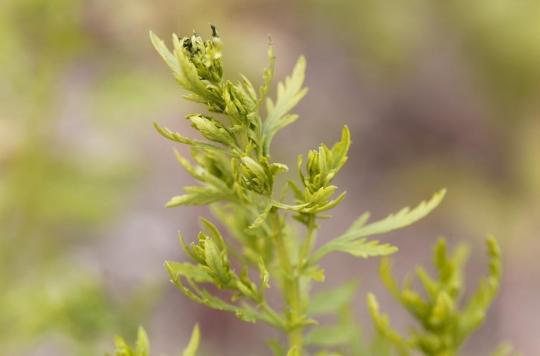The National Academy of Medicine warns against the remedy based on Artemisia, a plant used in herbal tea, to treat patients infected with Covid-19.

- Artemisia annua was initially used to treat malaria by countering the effects of the parasite responsible for the infectious disease
- Artemisia is consumed in herbal tea or in decoction, mixed, in proportions that have remained confidential, with Malagasy medicinal plants used in the composition of traditional remedies as antiseptics and bronchial thinners.
- The National Academy of Medicine considers that there are too many absences and shortcomings and strongly advises against using this treatment to treat Covid-19
On April 20, the President of Madagascar, Andry Rajoelina, announced the discovery of a miracle treatment against Covid-19: Artemisia annua. This plant is initially used to treat malaria by countering the effects of the parasite responsible for the infectious disease, earning the Nobel Prize in Medicine to Doctor Tu Youyou in 2015. This time, it is against the coronavirus that the plant would have miracle effects , according to the Malagasy Institute for Applied Research (IMRA).
Rigorous therapeutic protocols to go further
Artemisia is consumed in herbal tea or in decoction. “Distributed in a 33 cl bottle or in a bag of dry herbs under the ‘CVO Tambavy’ brand, it contains 62% of Artemisia annua and a mixture, in proportions that have remained confidential, of Malagasy medicinal plants used in the composition of traditional remedies as antiseptics and bronchial thinners”, describes the National Academy of Medicine in a communicated. The country did not wait for scientific and clinical confirmation of the remedy’s effectiveness to market and sell it to neighboring countries. The healing of two patients who received this kind of organic herbal tea was enough to convince the president.
The Academy of Medicine returned to this treatment and “formally advises against the inconsiderate use of herbal teas or decoctions containing of Artemisiain any form, for the treatment of Covid-19”, she wrote in the press release. To go further, it is necessary “only rigorously codified and scientifically substantiated therapeutic protocols“do”proof of their efficacy and safety in this indication.” Before her, it was the World Health Organization (WHO) which expressed serious doubts about its effectiveness in treating patients infected with Covid-19. Eventually, the Organization ended up including the Covid-Organics in the clinical trials of the program “Solidarity”.
Absences and shortcomings
In its press release, the National Academy of Medicine has many reservations and shortcomings about the effectiveness of this treatment. She thus notes alack of data on molecules present in dry matter of Artemisia annua produced in Madagascar, the absence of a prior study demonstrating an antiviral activity of artemisinin against SARS-CoV-2 in vitrothe absence of proof of concept and the empirical nature of the proposed therapeutic protocol, and the absence of controlled clinical studies of tolerance and efficacy”.
All these shortcomings and absences lead the Academy to consider difficult “to carry out a clinical study to demonstrate the effectiveness of herbal medicine in the treatment of Covid-19”. Furthermore, she notes that “large-scale consumption of herbal teas of Artemisia is likely to lead to the emergence of resistance to artemisinin-based antimalarials, essential for the treatment of malaria Plasmodium falciparum uncomplicated.”

.















